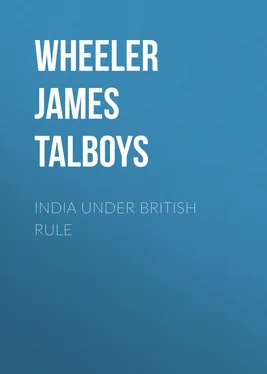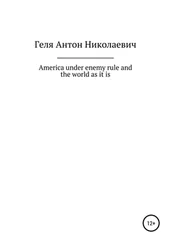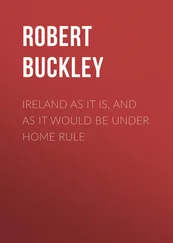Warren Hastings and Philip Francis.
§9. From the very first there were jealous suspicions in the Council between the two gentlemen in the service of the Company and the three gentlemen appointed by the Crown. In one direction Warren Hastings had laid himself open to an attack. In an evil hour he had lent the services of a British brigade to the Nawab Vizier of Oudh, and the Nawab Vizier had employed the brigade against the Rohilla Afghans on the north-west in a quarrel with which the British had no concern. The Rohilla Afghans were defeated by the British brigade, and then plundered and brutally ill-treated by the cowardly troops of the Nawab Vizier. Warren Hastings could only defend himself by saying that money was urgently required by the East India Company, and that the Nawab Vizier had paid heavily for the brigade.
Charges against Hastings.
Whilst Philip Francis and his two independent colleagues were denouncing this transaction, the idea spread amongst the Bengalis that the three new members of Council had been sent by the King of Great Britain to redress the wrongs of natives. Petitions against Warren Hastings were poured into the Calcutta Council, and seriously investigated by Philip Francis and his two colleagues, whilst Hastings and Barwell formed a minority and could not override their proceedings. Hastings was charged with having taken a bribe of 100,000 l. from the Nawab Vizier of Oudh. Then it was said that the public auctions of zemindaries were shams; that the native servants of Hastings and others had succeeded in getting large estates at low leases, and that Hastings had shared in the gains. Finally, a Brahman, named Nundcomar, a man of notoriously bad character, charged Hastings with having taken bribes for certain lucrative appointments in the household of the Nawab at Murshedabad.
Nundcomar executed.
Warren Hastings might have rebutted the charges by producing his accounts, and allowing his steward and other servants to be examined before the Council. But he preferred standing on his dignity and refusing to answer the charges brought forward by Nundcomar, who was notorious for perjury, for forging other people's seals, and for carrying on secret correspondence with the enemies of the British. Suddenly Nundcomar was arrested on a charge of forgery, and tried in the Supreme Court by a full bench, comprising Chief Justice Impey and the three puisne judges, and, after a fair summing up, was found guilty by a British jury, and hanged accordingly.
Inaction of Hastings: extenuating circumstances.
Nundcomar was a Brahman, and in those early days no Brahman, under Hindu law, could be put to death; whilst killing a Brahman, even by accident or unavoidable circumstances, was regarded by Hindus as the most horrible crime that could be committed by man. Forgery was a capital offence under English law, but not under Hindu or Mohammedan law. Hastings might have reprieved Nundcomar, but would not interfere. Philip Francis and his two allies, Clavering and Monson, were insolent and aggressive in the extreme. They had pushed Hastings into a corner from which he could not escape without damaging his position as Governor in the eyes of the Bengali population. They were equally insolent towards Sir Elijah Impey and the Supreme Court. They demanded, in arrogant language, that every respect should be paid to the caste feelings of Nundcomar during his imprisonment; and whilst the trial was proceeding they addressed the Chief Justice in the language of reprimand, as though they had been his superiors. Sir Elijah Impey went so far as to consult Hindu pundits on the proper treatment of a Brahman under confinement, and to act in accordance with their suggestions. Indeed he seems to have regarded the pretensions of a Brahman to be above English law, to be as deserving of respect as the old "Benefit of Clergy," which was still in existence in England, although taken away by statute from several offences. The execution was delayed for more than a month after conviction, and Nundcomar would probably have been reprieved altogether, but for the arrogance of Philip Francis and his two allies, and the additional perjuries and forgeries which were committed in the course of the trial. Had Sir Elijah Impey submitted further to the dictation of Francis, the Supreme Court would have lost all authority in the eyes of the people of Bengal. The abstract justice in executing Nundcomar for the crime of forgery may be open to question, but Sir Elijah Impey, as Chief Justice of the Supreme Court, was bound to follow English law, without making any exception in favour of a Brahman.
Collision between the Supreme Court and the Sudder.
§10. Meanwhile there was a collision between the Supreme Court and the Sudder. The Supreme Court began to exercise jurisdiction over zemindars and other Asiatics throughout the Bengal provinces, and to override the decisions of the Company's Courts. Its powers had not been clearly defined, and on one occasion it had been called upon to arbitrate in a quarrel between Warren Hastings and General Clavering, thus assuming a superior authority by deciding differences between the Governor-General and a member of his Council. Again, the judges of the Supreme Court were qualified lawyers appointed by the Crown, and they ignored the decisions of the Company's servants, who were not lawyers.
Points in dispute.
The collision, however, was entirely due to the false position which the East India Company had taken up. The servants of the Company had as yet received no authority from Parliament or the Crown to act as judges, or to make laws. They affected to treat the Nawab as a sovereign, and to act in his name; but the Nawab was a fiction set up to hide the territorial power of the East India Company from the British nation. Warren Hastings pleaded that the Bengal zemindars were servants of the Nawab, over whom the Supreme Court had no jurisdiction. The judges replied that the Nawab was a puppet, a phantom, as unsubstantial as a king of the fairies. Unfortunately, the maintenance of this phantom Nawab for the benefit of the East India Company has been for more than a century a dead weight on the revenues of Bengal.
Parliamentary settlement, 1781.
In 1781 another Act of Parliament was passed which put everything to rights. It authorised the Governor-General and Council of Bengal to make regulations which should have the force of laws, and it restricted the jurisdiction of the Supreme Court to the old bounds of the settlement between the Mahratta ditch and the river Hughly. But the state of Englishmen—that is, of British born subjects of the Crown—was exceptional. They could not be tried by any of the Company's Courts, or under any of the Bengal regulations. A British born subject who committed a criminal offence in any part of the Company's territories in Bengal could only be tried by the judges in the Supreme Court, in accordance with English law, and could only be convicted by a jury of his own countrymen.
Alleged corruption of Impey.
Whilst the struggle was going on between the Supreme Court and the Sudder, Warren Hastings appointed Sir Elijah Impey to be chief judge in the Sudder, on a salary of 7,000 l. per annum, in addition to his post as chief justice in the Supreme Court. Philip Francis denounced this arrangement as a bribe to Impey; possibly it may have been so, but in itself the appointment was admirably suited to the exigencies of the time. As an experienced lawyer, Sir Elijah Impey was far better fitted than Warren Hastings to act as chief judge in the Sudder, to hear appeals from the Company's Courts up-country, and to control the judicial administration of the Company's judges, who could not pretend to any legal training. But the malice of Philip Francis was as obvious in the case of Impey as in the case of Hastings. Francis had been cast in heavy damages by the Supreme Court as a co-respondent; and he was bent on the ruin of Impey. The result was that Impey was recalled to England and impeached. 13 13 The defence of Sir Elijah Impey has been thoroughly investigated from a legal point of view, in the Story of Nuncomar and the Impeachment of Sir Elijah Impey , by Sir James Fitzjames Stephen.
Читать дальше












